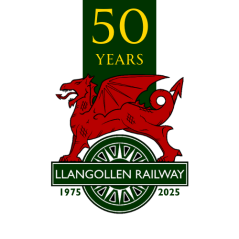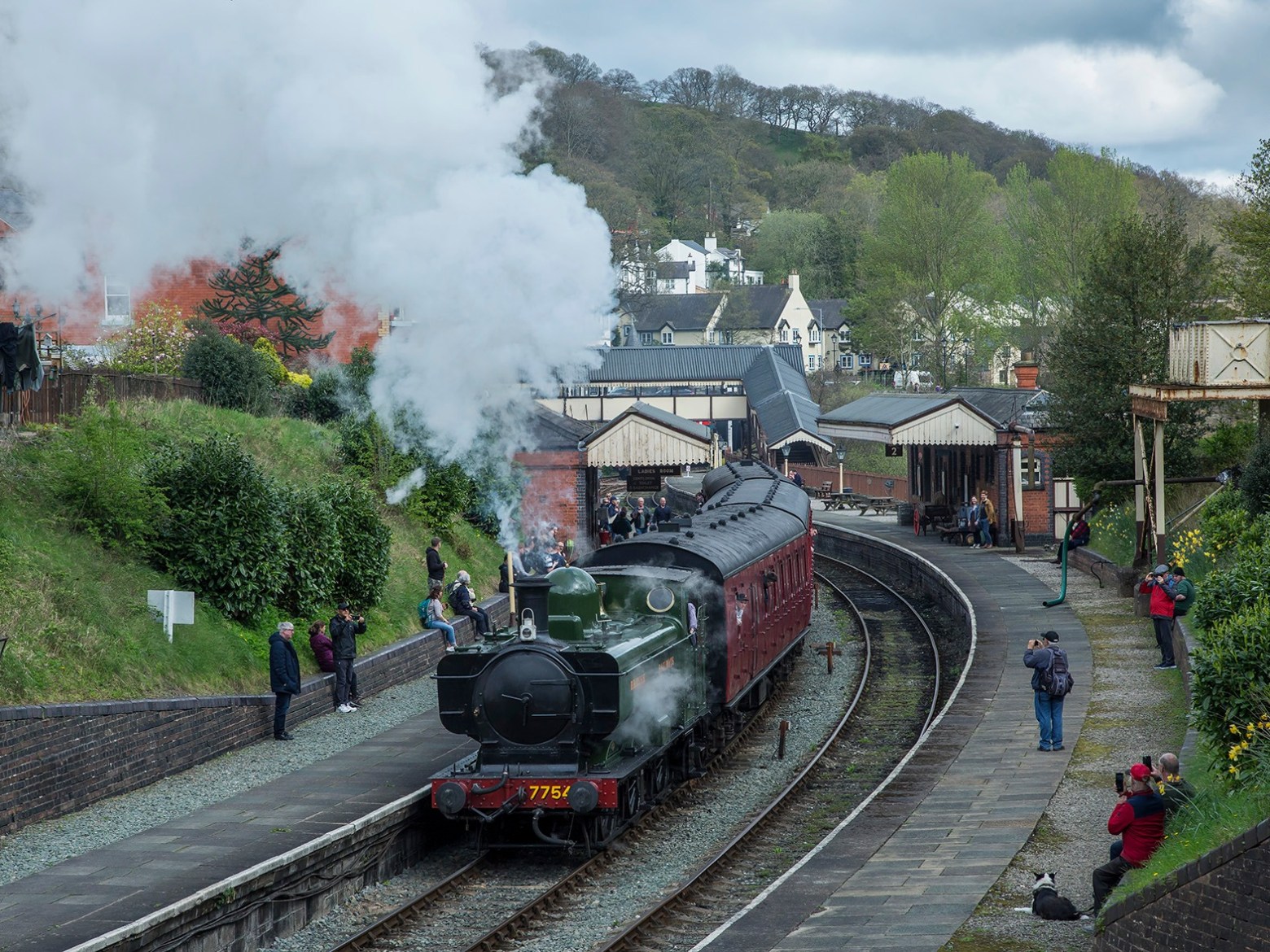GWR Pannier Tank – 7754
Built in Glasgow for the Great Western Railway in 1930, this iconic Pannier Tank Engine first saw traffic from Reading before moving in 1936 to Paddington Station in London. There it worked hard in support of passenger operations throughout the Second World War, eventually being given its first major overhaul in 1949 before being moved to its last posting for British Railways at Wellington. This locomotive’s career with BR would have been spent shunting passenger trains for mainline use, and hauling mixed freight and light commuter services on rural lines. The ex-GWR Pannier Tankers became a key pillar of BR infrastructure owing to their reliability and ease-of-maintenance, filling roles the length and breadth of the country. Their distinctive shape and sheer ubiquity have ensured that they are a firm favourite of railway enthusiasts.
In 1959, 7754 was one of many old tankers to be sold to the National Coal Board; helping to provide affordable, reliable energy to households across the country. 7754 worked at the Talywain and Mountain Ash Collieries, where it seemed to be regarded as a bit too hefty for use on the light industrial lines. Nevertheless, it continued to work for the NCB until 1975, when it was donated to the National Museum of Wales, who then elected to permanently loan it to Llangollen Railway.
This engine has been a mainstay of the Llangollen Railway for most of our history, pulling its first trains for us in the Winter of 1994. After an extensive overhaul between 2017 and 2022, the engine returned to traffic in 2023, where it is once again playing its iconic GWR role of pulling passengers through the glorious Dee Valley. Now in the ownership of Llangollen Railway Trust, and sporting a splendid new GWR livery, we look forward to seeing this engine thundering about the valley for many years to come.


